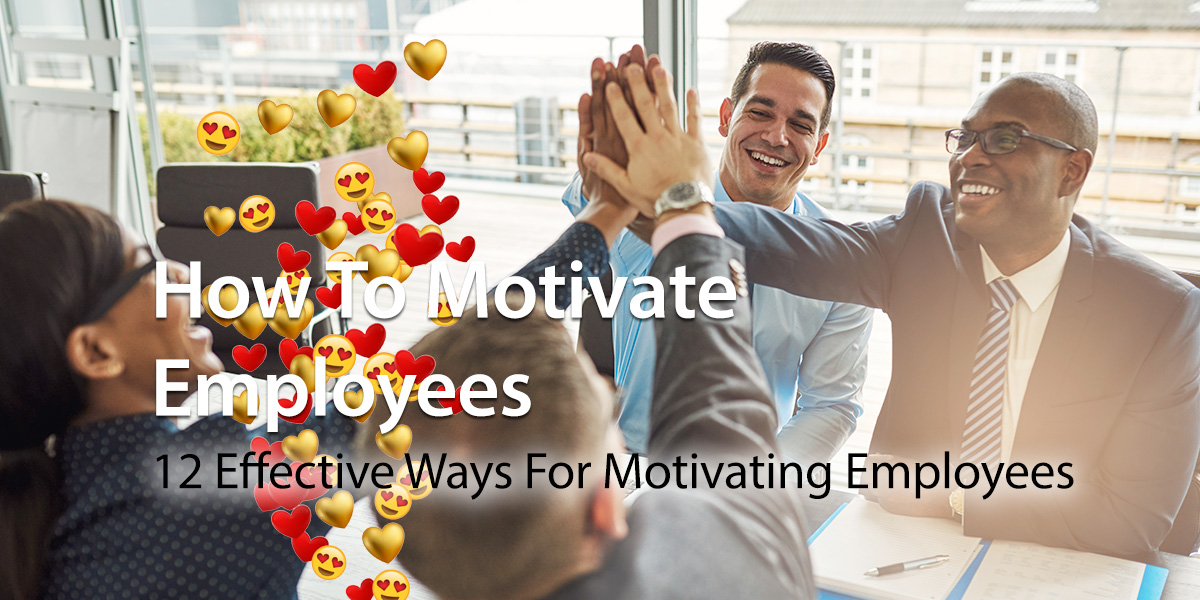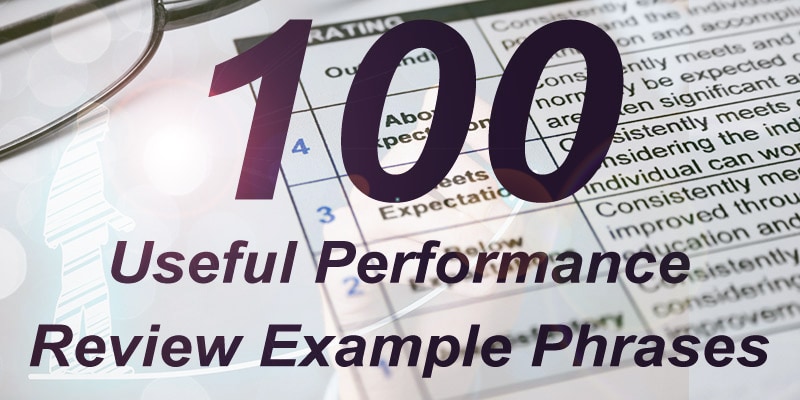Love ’em or hate ’em, performance reviews are still one of the main tools for getting the best out of your people. These days, effective employee appraisals are not just about performance. They dig deeper into a worker’s motivation, productivity, and wellbeing. Done well, and their impact is far-reaching, including employee engagement, corporate culture, and overall productivity. So, what’s the key to successful employee appraisals? Make sure you ask the right questions. The golden rule is to keep questions specific and limited in scope. Here we share 100 smart performance review questions. These staff appraisal questions will help time-pressed managers or those looking for some inspiration to get started.
We have broken down the selection into topic areas to make things easy. We don’t recommend using all 100 questions! Both you and your employee would be exhausted. Instead, we suggest you pick and mix a selection that works for your business. Topics covered include the following vital aspects of performance:
- Overall employee performance
- Employee strengths
- Areas for improvement
- Company culture and teamwork
- Behavioral review
- Motivation
- Manager-employee relationships
- Worker outlook and professional development
In the first of a two-part post, we focus on performance review questions for managers. And because appraisals are a joint effort, we share questions employees should ask next week.
Employee Review Opening Questions
Kickstart the discussions with this selection of openers. The aim here is to set the right tone: relaxed, conversational, and supportive.
- How are you today?
- Is there anything you would like to share before we get started?
- How do you like to receive feedback – emails, face-to-face chat, business IM?
- Do you feel I have given you enough constructive feedback throughout the year?
- What are your personal plans and goals for next year?
Overall Employee Performance
The questions in this section help you understand how the employee feels about their overall performance.
- Since our last review, what’s been the achievement you are most proud of?
- Can you share 3-5 contributions you have made that have had a significant impact on the business?
- How have these contributed towards company goals and objectives?
- Let’s look at the goals we set at the last performance appraisal. Which ones fell short and why?
- Do you have all the tools and resources you need to get the job done?
- If you don’t, what are the roadblocks we need to overcome?
- Is there anything I can do as your manager to better support you?
- What tasks have you enjoyed working on the most this year?
- What should you do differently next year, and why?
Employee Strengths
Performance appraisals are the perfect opportunity to acknowledge what the employee is doing well. Asking workers about their strengths gives you more insight. You may uncover skills you hadn’t noticed which could be of use to the business.
- What strengths help you to be effective in your work?
- Can you think of any ways we could use your skills more effectively?
- What knowledge do your co-workers rely on you to provide?
- In what aspects of the job do you think your performance is strongest?
- What strengths would you like to develop over the next 12 months?
Areas For Improvement
Whether you are an executive or an intern, we can always improve our work performance. The discussion on improvement areas doesn’t have to be negative. In fact, it’s a learning opportunity. You find out more about what the employee feels they need to work on. And together, you can identify the necessary support. Constructive criticism and feedback are vital here. Destructive criticism is demoralizing and demotivating, so make sure your language is positive rather than critical.
- Where do you think there is room for you to improve?
- What 2-3 things should you focus on to improve your performance?
- What help and support from me do you need to get there?
- What goals or deliverables are you least proud of and why?
- Do you have any areas of concern about your work or the team?
- What parts of the job do you find challenging?
- If you could change one part of your current job, what would it be and why?
Company Culture And Teamwork
Great things happen when managers can connect their employees’ passions with the organization’s mission. This selection of questions will help you learn how well the worker understands company objectives. You can then align the staff member’s goals with business priorities more closely. Furthermore, this section provides you with insights into team dynamics and collaboration.
- Which of our company values do you feel you have lived up to the most?
- What do you think are the main drivers of company success?
- Can you explain how you have contributed to company success?
- How has management helped or hindered your work?
- Do you feel at home with our corporate culture?
- Do you have any suggestions for improving our culture?
- Does the team collaborate effectively?
- If not, what are the roadblocks, and how can we overcome them?
- How do you think team meetings could be more effective?
- Would you recommend the company as a good place to work for your friends?
- How have you met corporate goals over the past year?
Behavioral Review
These questions will help you dig deeper into how the staffer works through projects and tasks. They assess the employee’s problem-solving abilities and approach to workplaces challenges.
- Let’s talk about your biggest accomplishment this year. What helped you get across the line, and what were the roadblocks?
- Turning to your biggest setback, is there anything you would now do differently? Could management or co-workers have done things better?
- Tell me about a situation when you disagreed with a manager or colleague about the best way forward. How did you communicate your viewpoint?
- How did you go about resolving the issue?
- Have you found some projects or tasks more challenging than you expected? Why do you think that was, and how did you overcome the difficulties?
- What’s been the most helpful feedback, training, or mentoring you received this year? Why was it so beneficial?
Motivation
Understanding what makes an employee tick is the key to unlocking performance. This selection will help you uncover how to get the best out of your staff member.
- What drives you to give your best performance?
- What motivates you to keep coming to work every day?
- What aspects of the company’s work are you most passionate about?
- Which parts of the job do you enjoy the most and why?
- What are the ideal working conditions for you to maximize your productivity?
- How do you prefer to be recognized for your contributions?
- What types of rewards encourage and motivate you to do a good job?
Manager-Worker Relationships
There’s a lot of truth in the old saying workers don’t leave companies; they leave managers. This section of employee performance review questions will help you build stronger relationships with workers. You will gain insights on how to drive performance. And you will learn some valuable feedback on your management skills.
- When it comes to completing your work, what do I do that is most helpful?
- And what is the least helpful?
- Name two or three things that I could do differently to better support you?
- Do you have any suggestions on how we can improve our working relationship?
- Have you got any concerns about the feedback I have provided?
- If so, how can I address those?
- Thinking about executive leaders, how has management helped or hindered your job?
- What would you do differently to improve teamwork if you were a manager?
Worker Outlook And Professional Development
Employee reviews are the perfect opportunity for exploring how employees feel about their jobs and future in the company. Use these questions to uncover your worker’s outlook. And learn what you need to do to retain top talent.
- What are your personal and professional goals for next year?
- How are your goals aligned with company objectives?
- What do you see as your hardest challenge, and what are you doing to prepare?
- How do you see your career progressing within the company?
- What professional development opportunities will help you get there?
- What support do you need from the company or me to improve your performance?
- What professional development opportunities did you get the most benefit from this year?
Tips For Managers On Conducting Employee Appraisals
Armed with a comprehensive set of performance questions, you are almost there. However, the following tips will help ensure the review meeting is successful for both parties.
- Prepare in advance. Being ill-prepared for the discussion is a sure-fire way to sabotage the whole process. Make time in your diary to review last year’s appraisal and jot down key areas you want to cover.
- Set aside enough time for the appraisal interview. Give the employee sufficient notice so they can also prepare well in advance. And allow ample time for the discussion.
- Keep it informal. Some managers prefer to host employee reviews away from the main office. A private meeting room with comfortable coaches or a quiet spot in the local diner makes for a more relaxed atmosphere.
- Keep a record. Document your discussions. Share a note of what was discussed and any agreed targets with the employee.
- Make it goal orientated. The worker should be in no doubt about what’s required. Make sure goals are SMART. And ideally, regularly check in with the employee to track progress.
- Keep it balanced. Highlight both the positives and the negatives. Strike the right balance for the best outcome.
- Invite feedback on your own performance. Appraisals are also an excellent opportunity to learn how you are doing as a manager. Ask your employee what you could be doing better. And use the insights gained to improve your performance as a manager.
Performance Review Example Phrases
Are you struggling to get started with drafting a performance review post-interview? We can help you there too!
Check out our dedicated blog with 100 useful performance review example phrases. Grouped by skills, attributes, and performance issues common across many jobs, you can easily customize these example phrases. We have included both positive and negative examples to suit a broad range of situations. Use the examples as a guide and tailor them to your team members.
Final Thoughts On Performance Review Questions
As a manager, getting started with annual appraisals can be daunting, especially with a large team of direct reports. These performance review questions to ask should make that task easier. Pick and mix from the selection to create a solution tailored to each employee.
According to SHRM, 55 percent of workers say annual appraisals do not improve their performance. Make sure your reviews are effective by asking the right questions to drive employee performance.
Next week we will be approaching the annual appraisal from the employee’s perspective. We will share 35 performance review questions that every employee should ask.
MyHub’s cloud intranet solutions are used by businesses worldwide. Our intranets help drive employee performance with more effective and efficient business operations. Find out how with a free demo or 14-day trial.










0 Comments